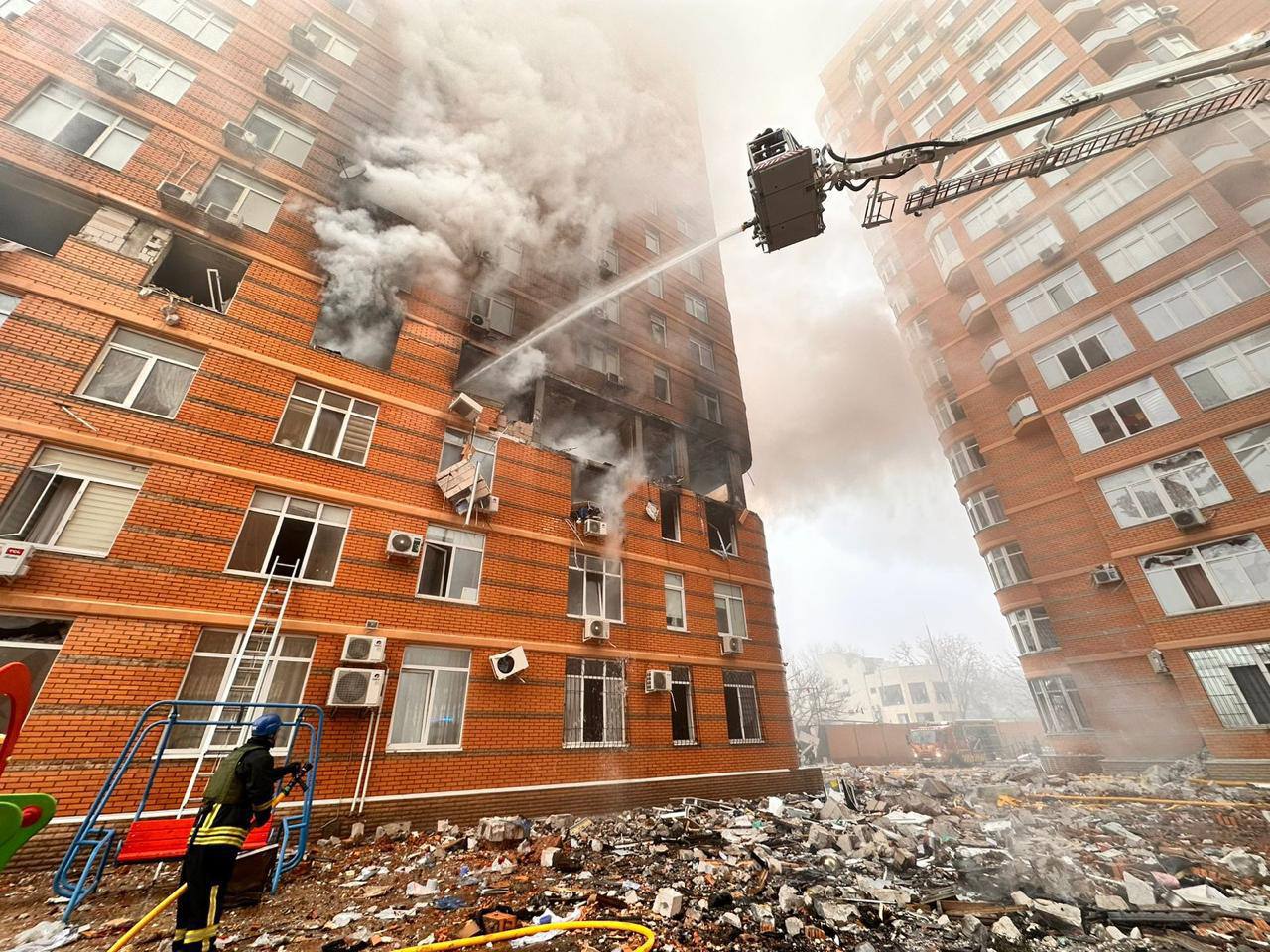Russia to continue large-scale combined weapons strikes against Ukraine
Russia's ongoing aggression against Ukraine shows a concerning pattern, with the Institute for the Study of War (ISW) predicting continued strikes aligning with the New Year holiday, mirroring last year's tactics to undermine Ukrainian morale. Despite these efforts, the ISW maintains that Russia's attempt to break Ukraine's resolve is improbable.
An especially alarming prospect is the potential for Russian forces to target Ukrainian energy infrastructure in the upcoming months. While the ISW dismisses the likelihood of success in breaking Ukraine's will to fight, it remains an area of significant concern. Furthermore, the intention to strike residential areas adds another layer of complexity, as Russian forces seek to exploit and exacerbate social tensions within Ukraine.
The recent strikes on December 29 represent a culmination of months of Russian experimentation, involving various drone and missile combinations. These attacks serve as a testing ground for probing Ukrainian air defenses. Notably, the ISW points out a substantial increase in intensity, with the November 25 assault involving 75 Shahed attack drones primarily targeting Kyiv. Despite the majority being intercepted, the prolonged six-hour attack resulted in casualties, injuries, and widespread damage to both residential and non-residential structures across the capital. This escalation raises concerns about the evolving tactics and capabilities of Russian forces, prompting a heightened need for international attention and diplomatic efforts to address the escalating situation.
Polish Foreign Ministry summons Russian charge d'affaires over missile incident
In response to a concerning incident during Russia's mass attack against Ukraine on December 29, the Polish Foreign Ministry took swift action by summoning Russian charge d'affaires Andrei Ordash. The ministry, led by Deputy Foreign Minister Wladyslaw Teofil Bartoszewski, delivered a formal note to Ordash, demanding an explanation for the intrusion of a Russian missile into Polish airspace. The note also urged an immediate cessation of such activities, expressing Poland's strong stance against any violation of its sovereign airspace.
The escalation unfolded as Russia executed a massive assault with 158 attack drones and missiles on Ukraine, marking the largest air attack since the initiation of the full-scale invasion. Amidst this onslaught, Poland's Operational Command detected an unidentified object breaching the country's airspace from the Ukrainian border. This prompted Polish President Andrzej Duda to convene an emergency meeting of the National Security Council.
Post-meeting, Polish military officials disclosed that the airborne object likely constituted a Russian missile, spending less than three minutes within Poland's airspace before returning to Ukraine. Witnesses in the Lublin Voivodeship, specifically above the village of Dolhobyczow and less than 5 kilometers from the Ukrainian border, reported observing the object moving at significant speed. The incident underscores the gravity of the regional situation, emphasizing the need for international scrutiny and diplomatic efforts to address such provocative actions.
Death toll of Russian Dec. 29 attack against Odesa rises to 5

Tragically, the toll of the Russian attack on Odesa on December 29 has further deepened, with the death toll now standing at five. Governor Oleh Kiper reported on December 30 that a 77-year-old man succumbed to injuries sustained during the assault. This unfortunate development adds to the grim aftermath of Russia's largest attack on Ukraine, involving 158 missiles and drones targeting various regions, including Odesa.
The cumulative impact of the December 29 attack now amounts to 40 lives lost, distributed across different Ukrainian cities: 16 in Kyiv, nine in Zaporizhzhia, six in Dnipro, five in Odesa, three in Kharkiv, and one in Lviv. The latest victim from Odesa was severely injured when a Russian missile struck a three-story building in the city center, according to Governor Kiper. Despite the dedicated efforts of medical professionals, the individual ultimately succumbed to their injuries.
As the region grapples with the aftermath of this devastating assault, 11 people remain under medical care in Odesa's facilities, including two children aged six and eight. This distressing update underscores the urgent need for international attention and humanitarian efforts to address the escalating human toll and provide support to those affected by the ongoing conflict.
Russians attack Kharkiv city centre: building hit, infrastructure damaged
The city of Kharkiv is currently facing a dire situation, with at least five explosions reported during an air raid, as confirmed by Kharkiv Mayor Ihor Terekhov and Oleh Syniehubov, Head of Kharkiv Oblast Military Administration. Terekhov emphasized the severity of the situation, stating, "A string of explosions in Kharkiv. At least five." Simultaneously, Syniehubov issued a crucial warning to the city's residents, urging them to seek shelter due to ongoing attacks by invaders.
The Ukrainian Air Force had earlier indicated the potential threat of ballistic missile strikes in several oblasts, including Poltava, Kharkiv, Sumy, and Dnipropetrovsk. Subsequently, Syniehubov provided an update, revealing that the number of hits had surpassed six, particularly impacting the central part of Kharkiv. The attacks have caused significant damage to civilian infrastructure, prompting emergency response efforts at the affected sites.
Tragically, Terekhov reported a direct hit on a residential building in the city center, resulting in severe damage and a subsequent fire. Information on casualties is currently being gathered, and there is also notable damage to other civilian infrastructure. The gravity of the situation underscores the urgent need for humanitarian assistance and international intervention to address the escalating crisis in Kharkiv and ensure the safety and well-being of its residents.
Russian attack on 29 December kills 39 Ukrainians
Ukrainian President Volodymyr Zelenskyy has reported that 39 people were killed in the massive Russian missile strike on 29 December.
"The work to eliminate the consequences of yesterday's Russian attack is still ongoing. Almost 120 cities and villages – hundreds of civilian targets – were damaged.
In total, 159 people were injured in this terrorist attack. Among them, as of now, unfortunately, 39 have died," said President Zelenskiy.